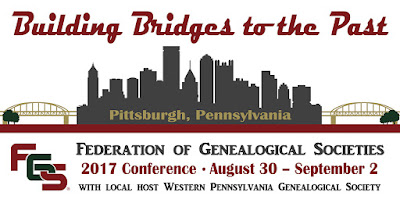FGS national conferences kick off with a day devoted to genealogical societies. Focus on Societies Day features tracks geared to society leaders, society members, and those interested in learning more about societies. Attendees will learn:
- innovative ways to manage and grow societies
- how to adapt changing technology to meet society needs
- about becoming more involved with societies
Focus on Societies Day at FGS 2017 begins with “Creating, Packaging, and Sharing Your Society to Non-Genealogists.” In this opening session, D. Joshua Taylor, MA, MLS, focuses on ways to package genealogical societies for non-genealogical partners, including local media, donors, charitable organizations, and politicians.
Members & Volunteers
How to Find Volunteers and Keep Them!
by Cari A. Taplin, CG
Volunteers are the lifeblood of any society. This lecture gives societies tips and ideas for ways to locate volunteers, motivate them, and keep them engaged.
Putting the Customer Back in Customer Service—Strategies for 21st Century Organizations
by Curt B. Witcher, MLS, FUGA, IGSF
This presentation will explore how a focus on good customer service will bring organizations in the genealogy space more members, and move them from surviving to thriving.
Programs & Events
Dynamic Programming for Societies
by Teri E. Flack, MA, MBA, FTxSGS
Educational programs are central to the mission of genealogical societies. Learn innovative and creative ways to develop dynamic education programs that can revitalize your society.
DNA and Your Genealogical Society
by Blaine Bettinger, PhD, JD
DNA is here to stay, and your members are asking about it. It is a unique opportunity to attract new members with much-needed educational programming, yet many genealogical societies are ignoring the valuable opportunity. Let’s review what other genealogical societies are doing to educate members and explore ways you can engage your members.
Projects
Digitizing on a Dime: Digitization Basics for Individuals and Small Genealogical Societies
by Kristin Britanik
This presentation demonstrates the basics of digitization for your collection of historic photographs and documents. Learn best practices for creating and keeping digital files with limited resources.
Creating a County Record Guide
by Tina Lyons
Put your society’s knowledge into a printed or online guide to help members and nonmembers find records in your area.
Reaching Out
Your Society Is on Social Media. Now What?
by Amy Johnson Crow, MLIS, CG
Do you feel like your society isn’t getting all it can from social media? Is your Facebook page lonely? Learn what one society did to increase their performance and reach more people.
Outdated Outreach: Breathing New Life into our Outreach Approach
by Cheri Daniels, MSLS
The challenge of attracting and engaging an ever-changing audience and/or member base has increased over the years and our previous methods can miss the mark. Learn new approaches that engages various groups and connects them through content-based programming.
Society Boards
Plain Spoken: Updating and Simplifying Your Society Bylaws
by Randy Whited
Do the bylaws of your organization guide or hamper its actions? Are they hard to interpret or perhaps ignored altogether? Let’s tackle how to clean up ambiguous language, make use of other guiding documents, and get our bylaws working for us.
Grant Writing Success for Societies
by Tina Beaird, MLS
Grant writing can be a daunting task for small societies and museums. Learn how to find grant opportunities online, define various types of grants, and decode a typical application process. Tina will share strategies on raising your application to the top of the pile and winning that grant!
Websites
Building Your Society’s Digital Library
by Jen Baldwin
Societies are increasingly creating and maintaining digital collections. Learn about best practices, overcoming financial obstacles, choosing your nonprofit or for-profit partners, and the necessary technology to achieving digital success. Sponsored by Findmypast.
Calling All Members: Your Society’s Website Needs Help
by Cyndi Ingle
A society’s website should be as diverse as its offerings and its membership. Is it time for you to give it a critical look and help overhaul your site? What can you do to help?
Discussion Groups
Delegate 101
by FGS Board Members
Join FGS leadership to discuss your role as a society delegate and how to get the most out of your society’s FGS membership.
Publications
by FGS Board Members
Do you have problems finding content for newsletters or journals? Are you considering moving from print to digital? Discuss issues your society has with publications.
In addition to programming that will help you with the challenges of managing a modern society, Focus on Societies Day will allow you to connect with other society leaders and members.
Register today for FGS 2017 in Pittsburgh.
 Our October webinar will feature Amy Johnson Crow who will present “Finding and Creating Images for Your Blog and Social Media.” Register in advance for this highly requested and popular topic from one of our community's best online marketers!
Our October webinar will feature Amy Johnson Crow who will present “Finding and Creating Images for Your Blog and Social Media.” Register in advance for this highly requested and popular topic from one of our community's best online marketers! 








